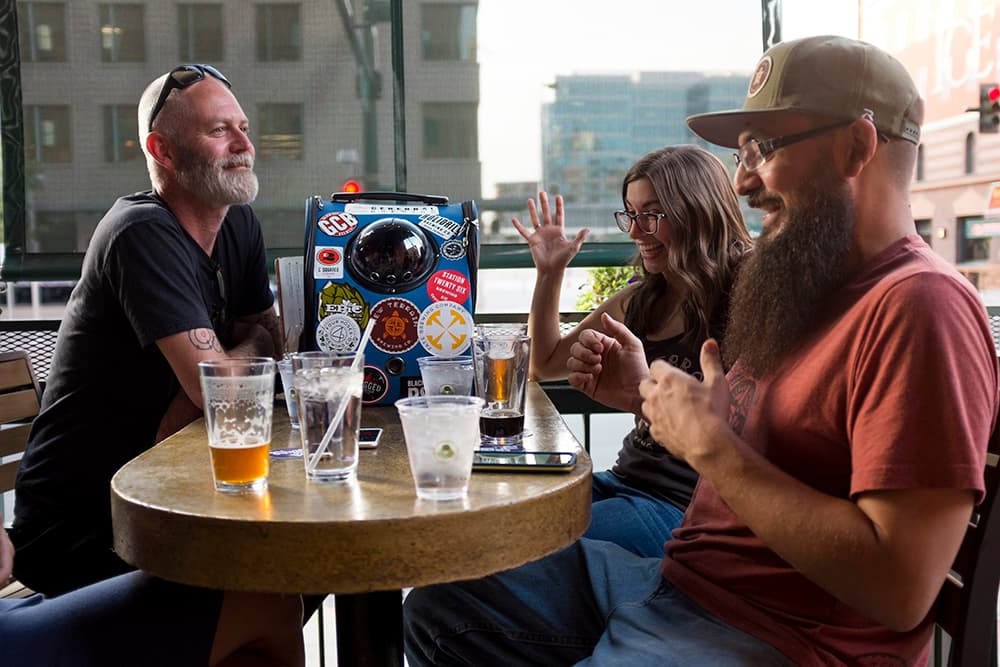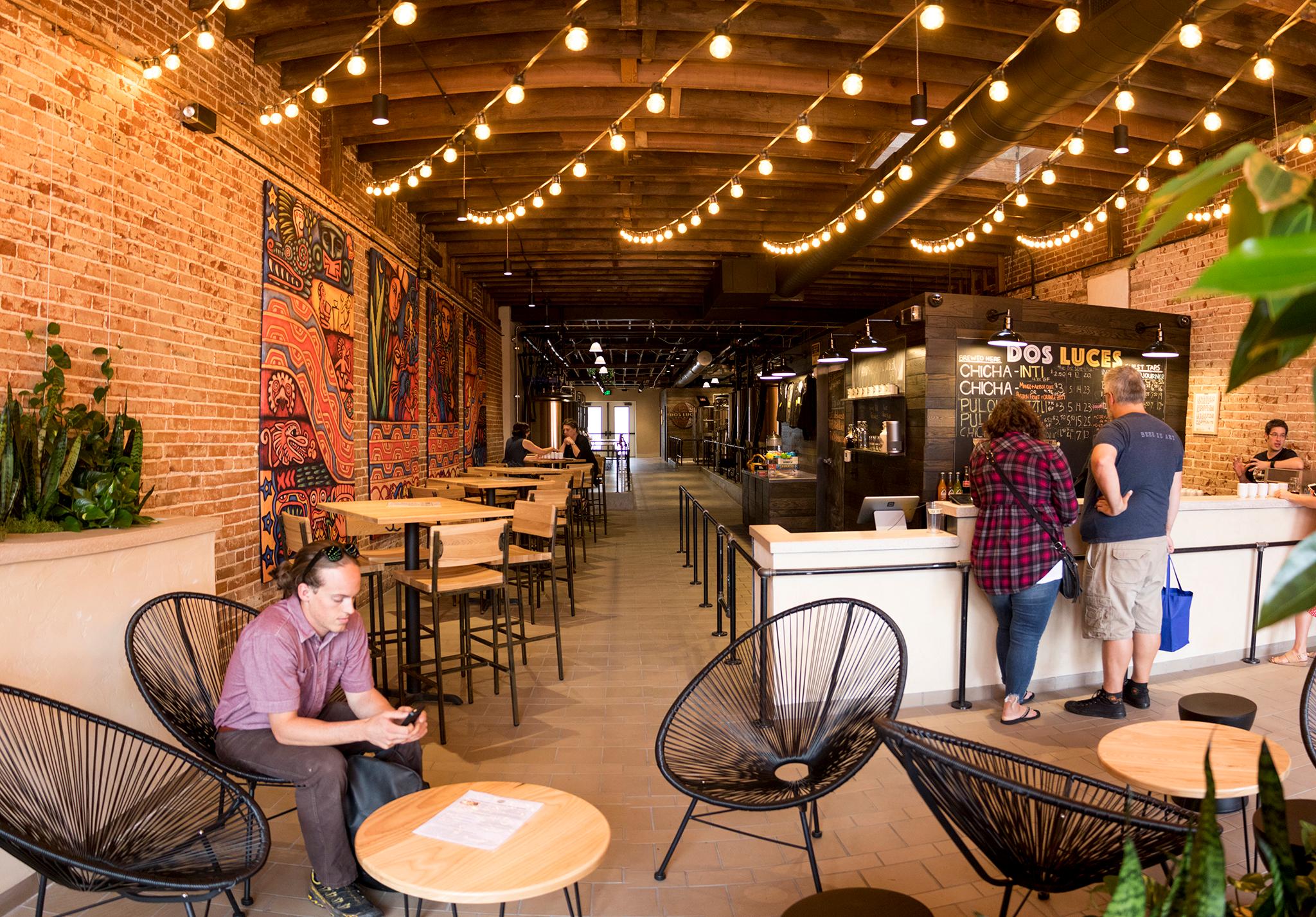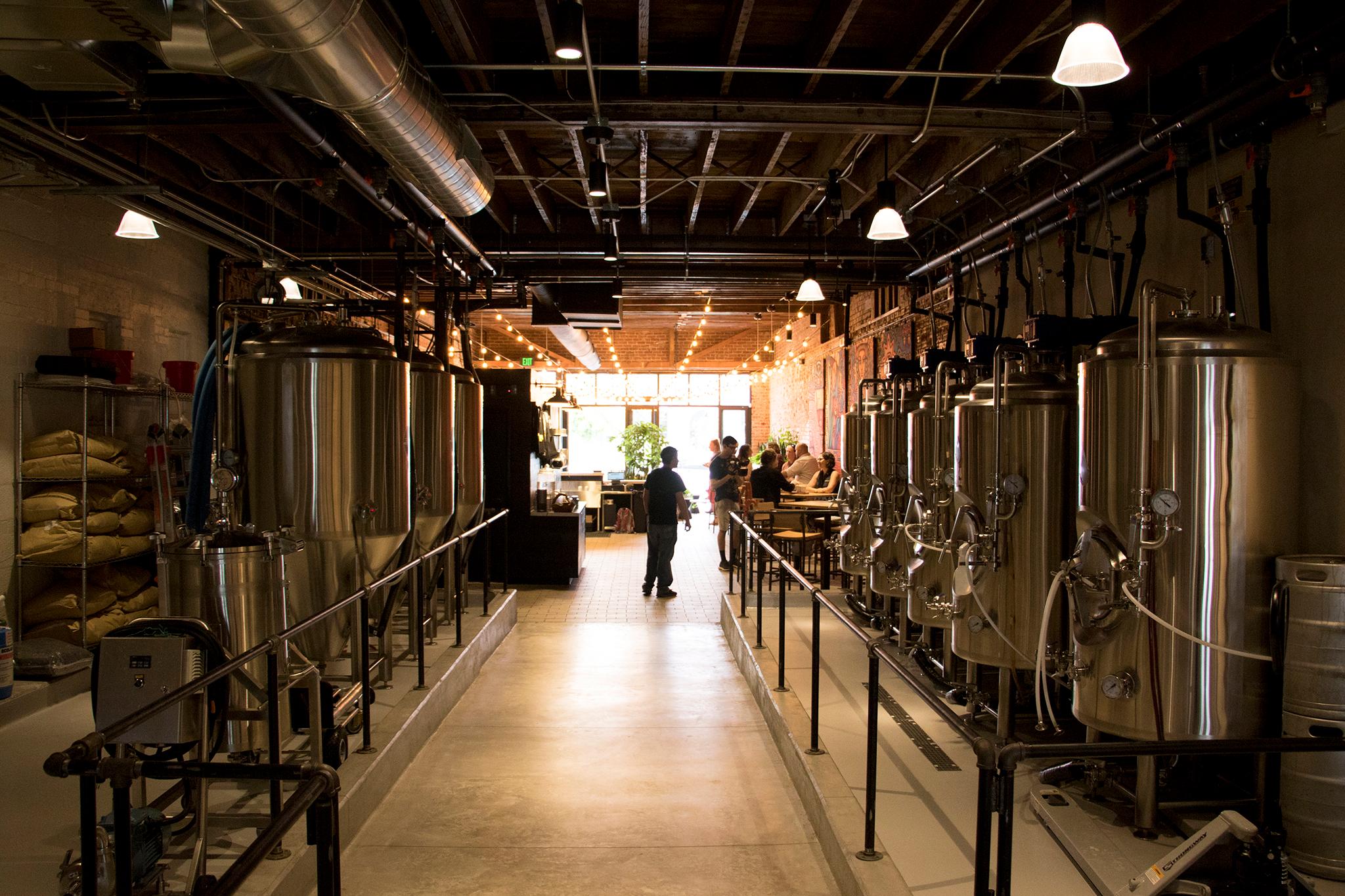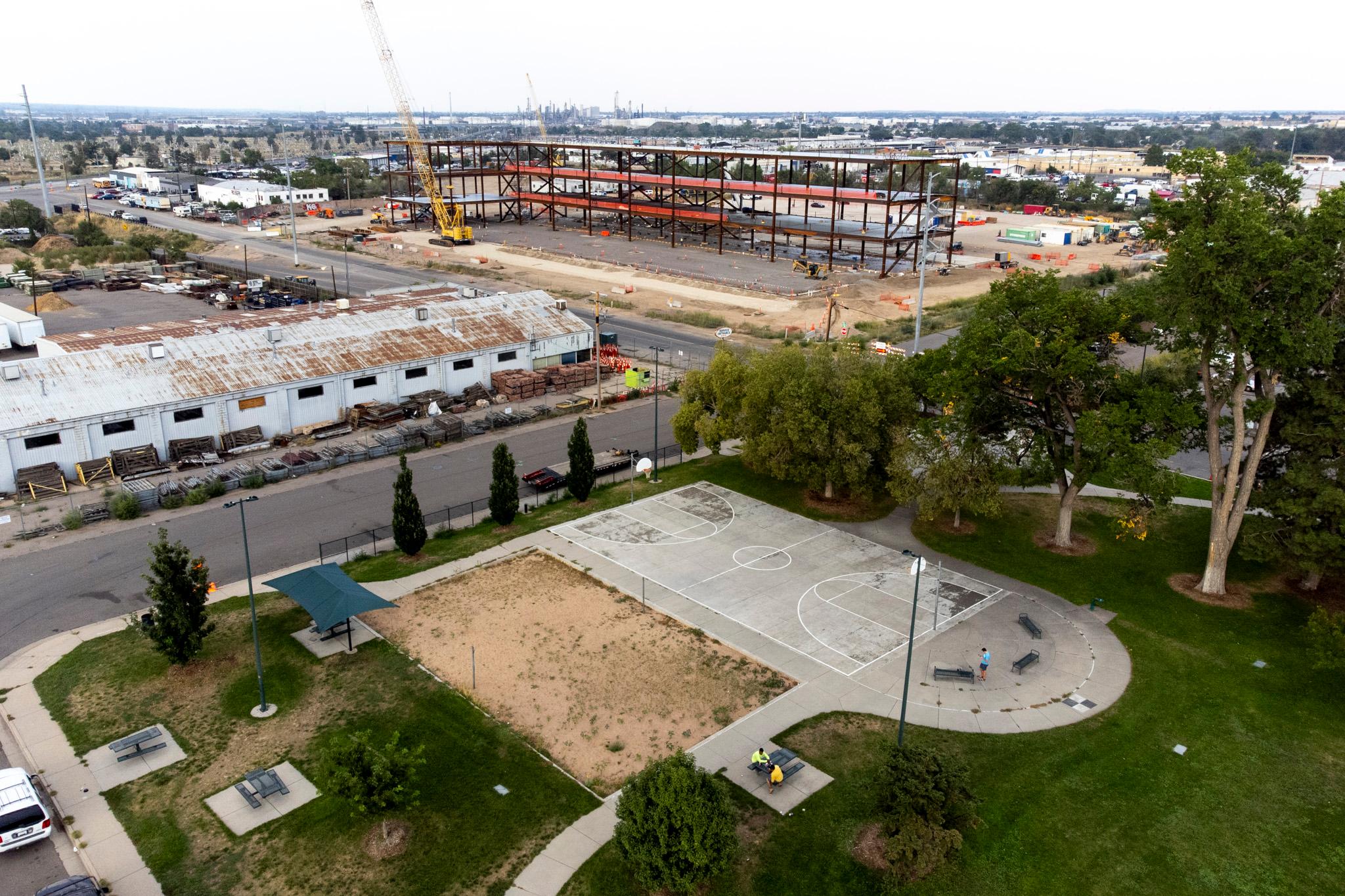There's a lot of booze in Denver.
And we're just talking about the breweries. Data from the state's Department of Revenue shows the City and County of Denver currently houses 81 licensed breweries, with at least four breweries with two separate licenses. These 81 include brewpubs that serve food and traditional breweries that only serve beer (but typically have food trucks or food pop-ups nearby).
Unsurprisingly, many of them are located in and near downtown, with a concentration in LoDo and Five Points and another big bunch along South Broadway.
Overall, a big chunk of the 429 licensed breweries in Colorado are in Denver.
So what's next for this thriving industry?
Andres Gil Zaldana, executive director Colorado Brewers Guild, said brewery growth is likely to slow down a bit. Next year probably won't match 2018's growth, which Zaldana called a "banner year" after the city added between 20 to 30 new breweries. But it's unlikely the number of breweries in the city will hit the 100 mark next year or anytime soon.
"That seems to be slowing down," Zaldana said. "Next year, it looks like five or 10 (new breweries) will be opening."
In 2019, people can expect the return of River North Brewery to River North, Zaldana said, and he's heard Park Hill will get a new brewery as well.

River North Brewery founder Matt Hess said their new location at 3400 Blake St. should be open early in the year. The company's first brewery was in the art district before they moved to a much larger space on Washington Street three years ago.
"We always wanted to get back to the neighborhood we started in when we left," Hess said. Their current location will serve as their primary canning site, with the new site also brewing smaller batches. "It'll be kind of our flagship taproom."
Zaldana expects new breweries to pop up anywhere. Well, almost anywhere.
He didn't want to call out any neighborhoods specifically, but he did point out some brewery deserts out in southeast Denver. There are some areas with high real estate prices and rent costs -- we'll call them affluent neighborhoods -- that pretty much put them out of reach for most prospective breweries.
Industrial spaces are preferred, though Zaldana said their preference for these spaces is being challenged by cannabis businesses, who also seek them out.
As far as beer trends, Zaldana said it can be tricky to gauge since Colorado is often "at the vanguard of new trends," making it hard to predict. This year saw the rise of hazy IPAs, glitter beer (wait, what?) and brut IPAs. He does think hybrids and lighter beers will continue to be popular into the new year.
Judd Belstock, co-founder of Dos Luces, operates one of the youngest breweries in the city (it held its grand opening in August). The South Broadway craft brewery specializes in beers mixing traditional Latin American beverages chicha and pulque. Unlike most local beers, Belstock's beers are primarily made from corn.

The Denver native said he spent 17 years working for big commercial breweries and smaller craft operations before opening his own brewery. It took him about six months to find a place to open. He said his search "started and ended" on South Broadway, which is home to several craft breweries.
Alterations Brewing Company, Black Project Spontaneous & Wild Ales, Grandma's House and Declaration Brewery Denver are located on or near the corridor.
Everyone's pretty friendly, Belstock said, despite there being some level of competition. He thinks the area is capable of becoming a brewery hotspot in Denver.
"I think that we can do even more," Belstock said. "You look at RiNo and I think we could do even better."
Zaldana also thinks it's definitely a possibility that it "could become one of the new, next hotspots" for breweries -- which would be great for beer drinkers and bad for parking (Zaldana encourages people should take rideshare).
"I think they're trending in that direction," Zaldana said. "They're building up...all those breweries have built up a rapport with the craft brew community. "
Belstock thinks the reason Denver is such a good brewing town is it has "sophisticated" drinkers and folks willing to try new things (like his corn-made beer). It's why he believes he can get away with not having traditional craft brewery staples like IPAs or pilsners, which he thinks would be tricky elsewhere.
"It would be pretty hard for me to be a suburban brewery," Belstock said.
Need to pick a brewery? We've been working our way through them here.













